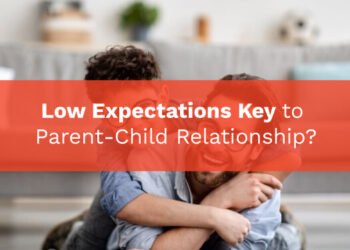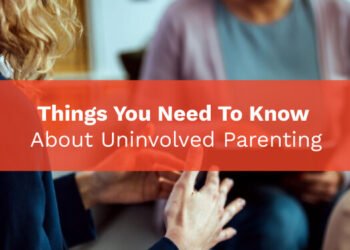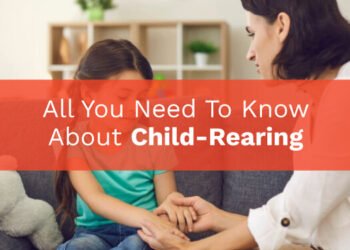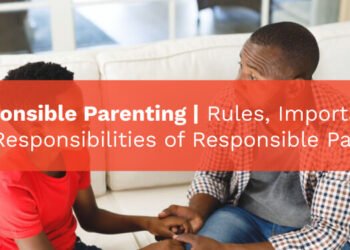Unjustified treatment of http://baltimore.acm.org/
one person over another causes a downturn in morale. Most of us think schools, colleges, and the workplace are commonplace for the practice of favoritism. But, in actuality, parents have a favorite child. Family time is likely to ruin due to parental favoritism. Parents often deny that they show unfair treatment to the children, disrupting family life.

When speaking about partiality, almost http://kbp.by/
every parent claims their children to be equal. They assert none of them is better than the other. But, every parent does have their favored child. The time spent with the kid, love, and affection given to them discloses the favorite child.
Parent’s favoritism decreases the self-esteem of http://www.sfcritic.com/
a child. Criticism towards a child makes a mental impact on the one who faces bias. This results in a crash of self-confidence and esprit. This is the reason for hatred against parents.
Not the child’s personality http://oneandroid.net/
is hampering; changes in behavioral problems are also natural. Those who are victims of discrimination are likely to spoil. They start to develop anger and depression that might ruin their entire lives.
Reflection of strong ties to one child over the other should not be visible. Distinction ends with forming a completely different personality with no self-respect and egotism.
Effects of Parental Favoritism
These are some of the gestures of the effect of favoritism that show parents having a favored child.
- Parents give less attention to a child after a newborn introduces sibling rivalry.
- Suppression and domination mark the behavior of a girl and boy.
- Parents are unaware of their children’s feelings.
Such favoritism is likely to affect a child’s personality and character. Here are some of the aftermath effects of favoritism when parents play favorites.
- They will be unable to get close and share their problems with their parents.
- The differential treatment concludes in depletion of mental and social well-being.
- Anger, depression, loneliness, and other chronic illnesses are all they live with.
- Lack of communication or interacting skills also hampers children’s careers.
- And the worst part, due to differential treatment, they might act as their parents to their upcoming generation.
1. Parents’ Favorite Starts With the Newborn

Favoritism by parents to children starts whenever a new member comes into the family. When a newborn baby comes home, feeling jealous and insecure is common for adult siblings. It is so because of time, affection, and preference first child is split almost by halves, resulting in sibling rivalry.
Fondness for newborn offspring increases, and insecurities arise for an adult sibling. In the presence of siblings, they start to feel them being less desirable by their parents. Parents provide more benefits for a first-born child than adult children. But, on the other side, the decrease in parental affection makes children left out.
2. Parents’ Favorite Starts with Family Issues
Apart from first-borns or later-born, parents’ favor sometimes is also forwarded by marriage and family problems. The stormy relationship between mother and father, economic problems, and stress to maintain a quality life also give birth to favoritism.
In other words, families having such issues are generally busy dealing with stress. During this time, the child might not get the attention they need. Such acts of parents that are, blatantly favored by them, when analyzed through the positive side, result in making the child independent.
Nevertheless, such a kind of outlook, that is, neglecting behavior, often leads to isolation. Thus, unequal attention in any case by fathers and mothers toward adult children must have closure.
3. Parents’ Favorite with Gender
Gender is another the most common type of parental favoritism among children. As per a study, more than 70% and 65% of fathers and mothers respectively are biased toward their children.
In most cases, the youngest daughters are favorites of their father, while the oldest sons are mothers’ favorites. However, these cases can differ in many situations.
For instance, when it comes to making financial decisions, fathers might support their sons’ decisions more than their daughters, thinking their sons are more mature than their daughters. Likewise, while making some purchases at home, most mothers trust their daughters. It is because girls are expected to have more product knowledge than boys do.
When you have children of the opposite gender and start to favor one over the other gender, then favoritism can start in those houses.
Favoring either a boy child or a girl child is the way parents outline nurturing. Such behavior shown by parents on social comparison destroys parental relationships. It hampers the bonding with siblings when they find to be nurtured with social comparison, for they do not feel loved by parents equally.
4. Parents’ Favorite Fabricating Worst Personality
Favoritism activates based on the same personalities shared by the child and parents. People tend to get attached more to the person who fits with their personalities. Every parent tries their best to cooperate and get close to their children. But preferential treatment disorders the growth of children. This sort of parent’s relationship with their offspring is favoritism of genetic appearance.
Parents get more attached to the kid who shares similar kind of behavior and the way they think. While on the other hand, the exercise of genetic appearance causes conflict. And might also result in the withdrawal of relationships with family members.
Partisanship from an early age is a compulsion to end to master a child’s personality in childhood and adulthood.
Major consequences of parental favoritism
These are major consequences of parental favoritism.
1. Parents’ Favorite distressing offspring
Inequity introduced by the father and mother impacts emotional and mental well-being. Comparing children results in a lower level of distress for the child who is often counted as the least favored child. Such unfairness fosters unnecessary disputes.
They will never be able to believe their own will and keep on doubting their presence. Such kids will be unable to believe in their true potential. Lack of support along with self-doubt suppresses talent. Parental discrimination outlines mental and emotional effects on children’s lives.
2. Parents’ Favorite resulting in low performance
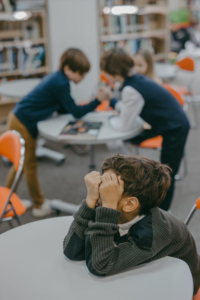 The feeling of discrimination could end in jealousy, one wanting to harm the preferred child. Marking one to be intelligent compared to another is not a good move for parents. When a child receives such biases they always fail to perform well throughout their life. They show poor results in the academy and perform poorly to hold responsibility as adult children.
The feeling of discrimination could end in jealousy, one wanting to harm the preferred child. Marking one to be intelligent compared to another is not a good move for parents. When a child receives such biases they always fail to perform well throughout their life. They show poor results in the academy and perform poorly to hold responsibility as adult children.
The absence of any of this ability to handle the situation makes them oppressed. It enhances anxiety, anger, and depression. So, desolation is another worst impression of partiality created by parents towards offspring.
3. Parents Favorite introducing introverts
Difficulty in forming a social relationship is another disadvantage of perceived parental favoritism. Those children who are not given much attention and encouragement are fond of living alone and enjoying their own company. They cannot be expressive while dealing with the social situation.
The child grows up as an introvert and will be unable to build social skills. They remain to themselves due to underestimation. They lack proper skills and interaction capability that impact jobs and their careers.
4. Kids Reflecting on their Parents
The worst part is that there is a high chance of portraying identical parents when they have kids. Those who understand the need for equal treatment of children might go against bias. But, the one unaware of the consequences of preferential treatment influences the same act in a new generation.
When a child gets a feeling of not being present among parents, they should talk with parents about being less-wanting. They should also reassure strength to know their capability to remain self-sustained.
5. Parents’ Favorite Affecting Personality
Differentiation between a baby girl and a baby boy by setting disciplines is irrelevant. It alters the personality of a child. Lack of self-confidence, self-regulation, antisocial behavior, self-esteem etcetera is the type of personality children develop.
None of the activities that trigger favoritism should be put on display by parents. As a side-effect, children will find it difficult to adjust to any situation.
Conclusion
To sum up, parents favor one child at the expense of another child is parental favoritism. Despite the denial of child discrimination, in most families, bias exists. One-sidedness starts when the new baby comes into the family.
Additionally, syncing of genes is another reason for attachment to a specific child. To any extent, there are no positive sides to preferential treatment. Although sometimes such controlling behavior is good from the parental side as it makes a child independent. But, too much carelessness obstructs emotional and mental prosperity.
Anxiety, depression, and social skills are a few inconveniences that perceived favoritism motivates. Introverts, anger, chronic illness, and communication skills are a few common impacts.
Parenting is difficult and it is a learning process. To prevent the unhealthy growth of children, fathers and mothers should learn to drop preferential treatment. Parents should love each child. Parents playing favoritism should be aware of the cons of partiality.
Also Read: Things You Need To Know About Uninvolved Parenting
Also Read: What Are the Best Children’s Books?
Experience the luxury of AAA+ quality replica watches at Nurse Watches. Enjoy our extensive collection and benefit from a 2-year warranty on all purchases.
Top Swiss Omega Replica Watches UK Online Store For Women. You can find these Online Store at Omega Awards.
The best replica watch knowledge in the world is on Breitling Replicas.



